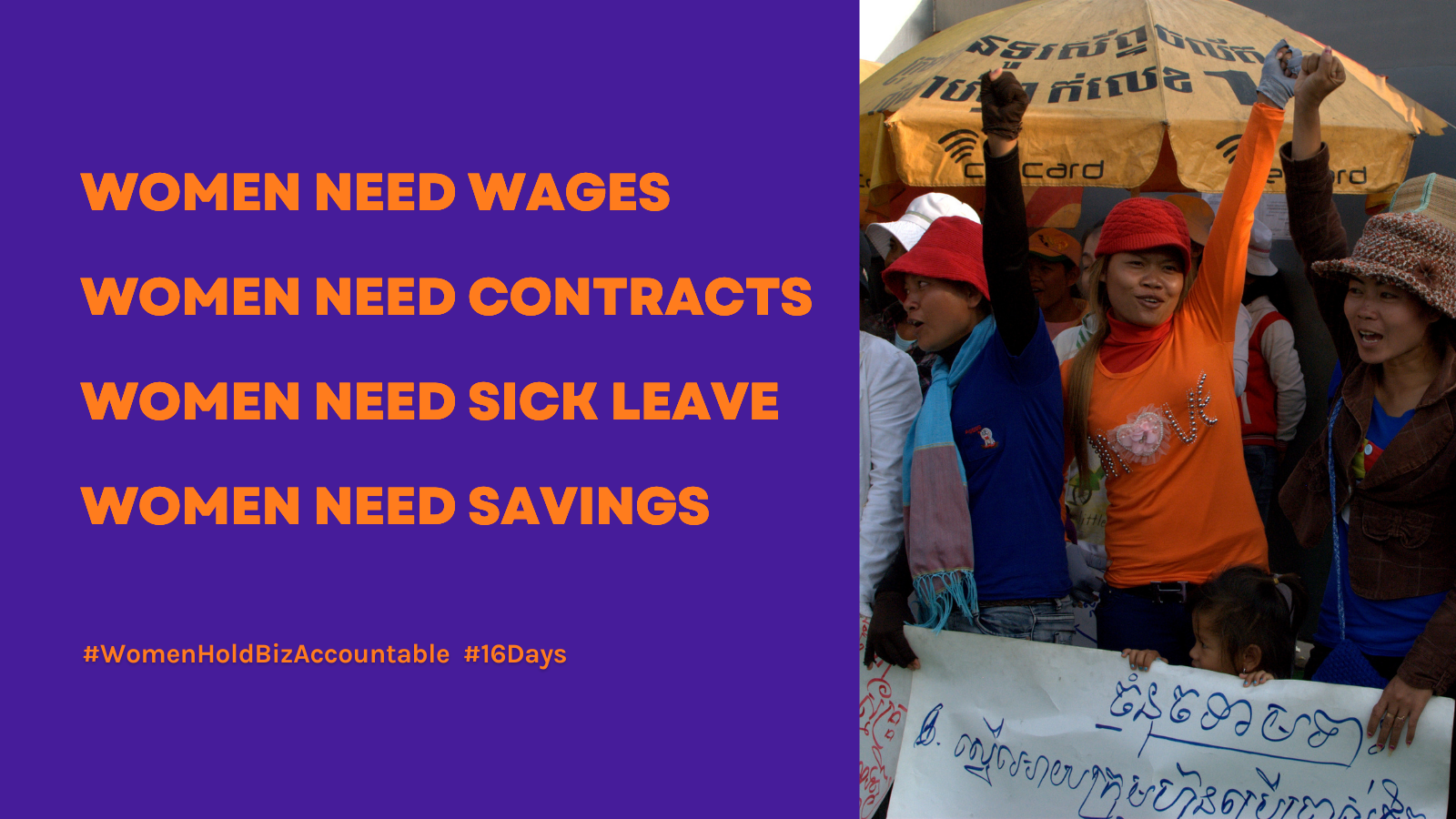
CSO's call on EU to ensure gender responsive law on human rights due diligence
On International Women Human Rights Defenders (WHRDs) Day, 61 CSO's call on the EU Commissioners to ensure gender responsive law on human rights due diligence and corporate accountability. Today is a day to pay tribute to the women who defend human rights and the environment across the world. Gender-responsive corporate accountability and due diligence rules are urgently needed to properly address these deep-seated inequalities.
Being at the forefront of the fight against all forms of discrimination and inequality, protecting environmental, land and Indigenous peoples’ rights, WHRDs constantly face harassment, imprisonment, stigmatisation, criminalisation and murder in addition to gender-specific forms of violence, and
discrimination, including sexual violence. In their letter, Clean Clothes Campaign and others push for the European Union to protect the rights of the nearly 190 million women working in global supply chains through the upcoming Sustainable Corporate Governance (SCG) directive.
In 2020, 13 % of the 331 human rights defenders killed worldwide were women. Most of these killings occurred in the context of business activities, with Latin America being the most affected region. Gender-specific impacts on women happen in all sectors, from extractives, manufacturing and agriculture to accommodation, food services industry and the garment sector where women make up 80% of the workforce. Furthermore, 71% of people living in modern slavery are women. Given that gender issues frequently intersect with other grounds for discrimination, many women
are further discriminated against based on intersecting identities such as their ethnic origin, age, class, caste, migration status, gender identity and/or other factors.
The SCG Directive must ensure that European companies are compelled to change their own practices and business models, cover the costs of compliance to prevent harms and face the judicial and administrative consequences of failing to do so. It represents a unique opportunity to fight gender inequality and discrimination in global value chains. In the open letter, Clean Clothes Campaign and 60 others call on the EU Commission to take that step by incorporating the recommendations as stated in the letter into the text of the Directive.